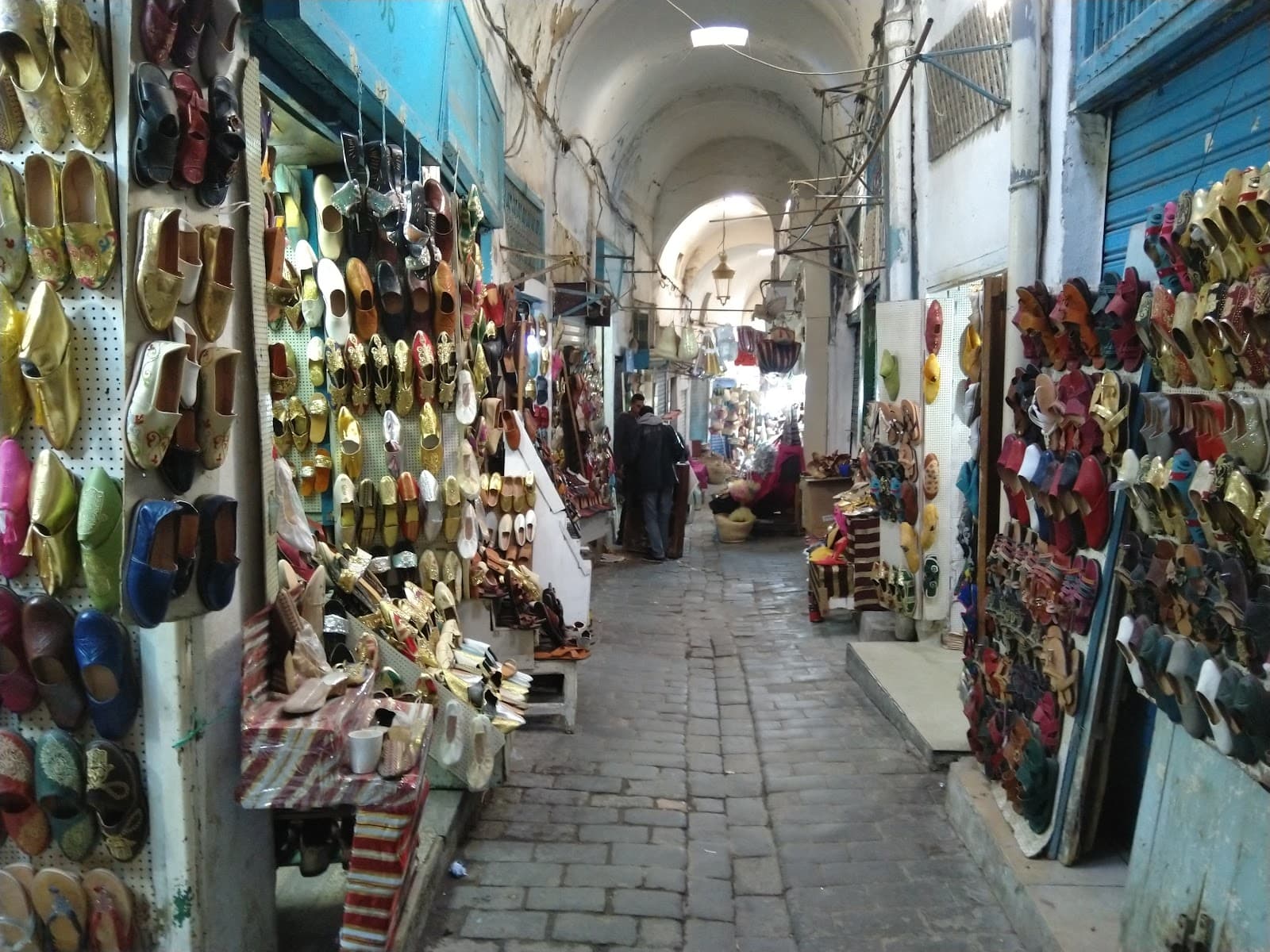
Souk El Blaghgia
Discover centuries of Tunisian craftsmanship at Souk El Blaghgia, a historic market renowned for its leather goods and textiles.
Highlights
Must-see attractions

Social
From TikTok & Reddit
Best Time
Fewer crowds, vibrant atmosphere

Souk El Blaghgia
Best Time
Fewer crowds, vibrant atmosphere
Highlights
Must-see attractions
Discover centuries of Tunisian craftsmanship at Souk El Blaghgia, a historic market renowned for its leather goods and textiles.
"A nice and quiet big Souk, perfect for shopping and buying gifts!"
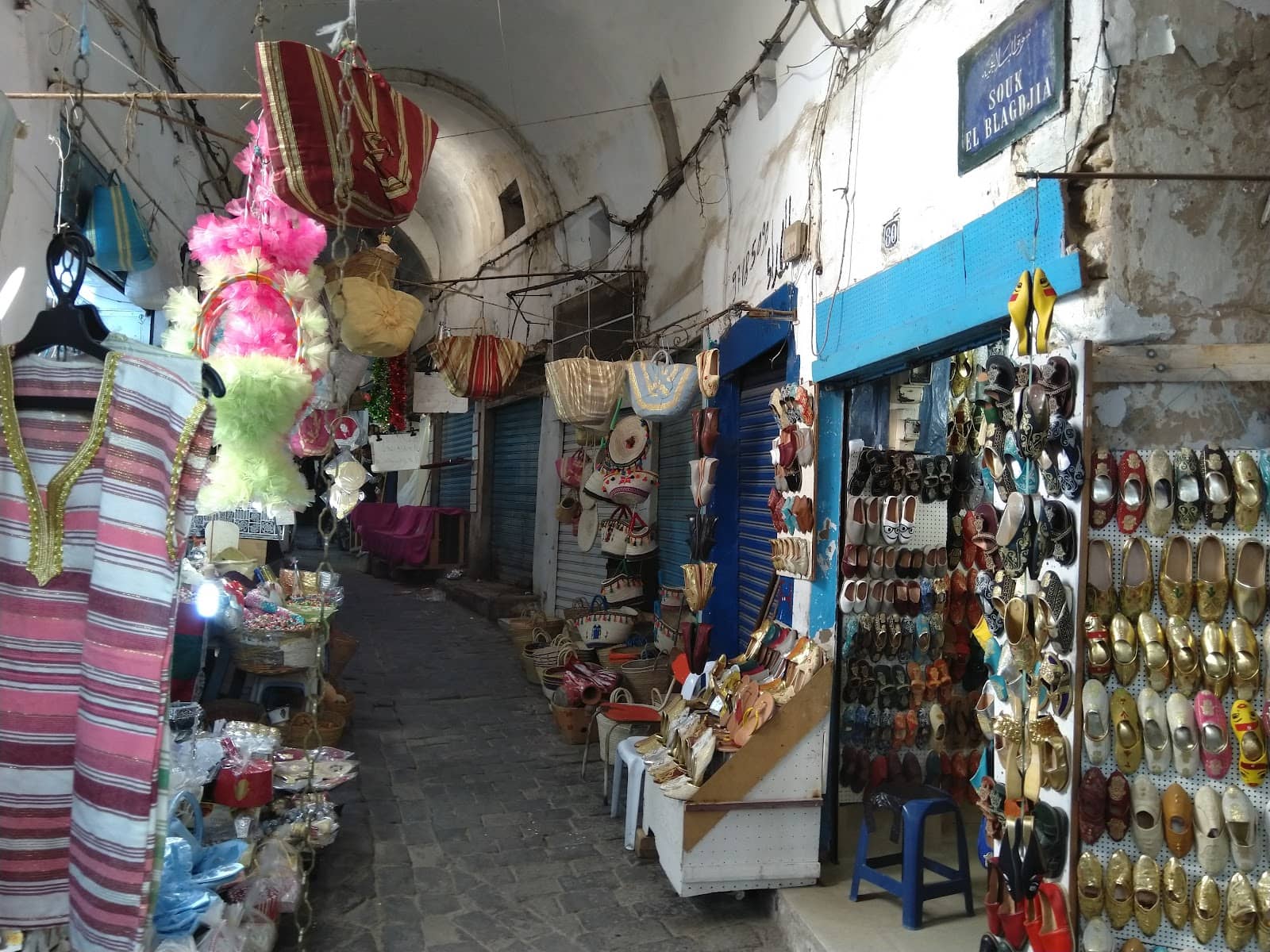
🛍️ Bargain with a Smile
Haggling is expected! Start with a lower offer and negotiate respectfully for the best prices. :moneybag:
👟 Comfortable Footwear is Key
You'll be exploring winding alleys, so wear comfortable shoes for a pleasant experience. :athletic_shoe:
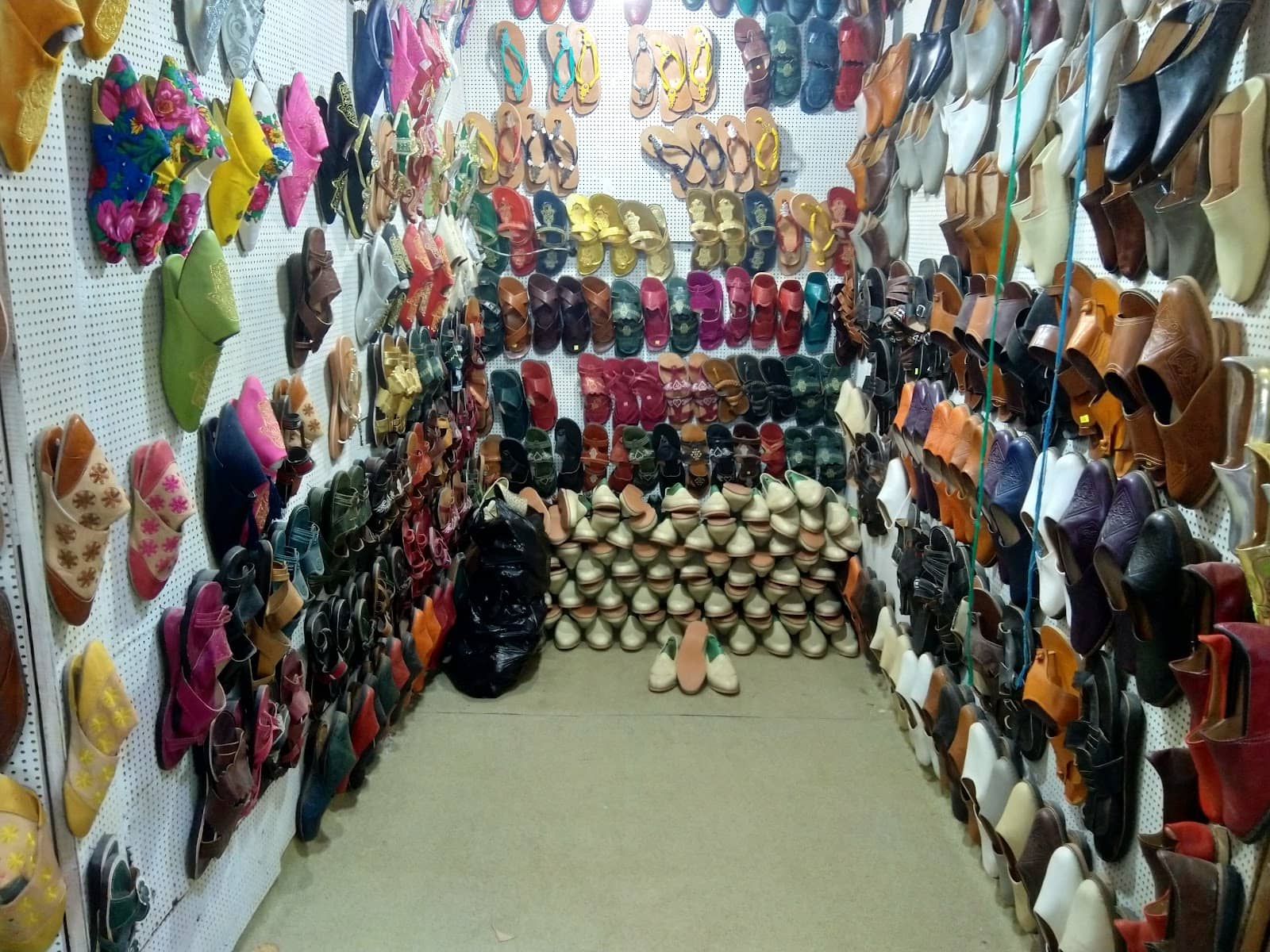
Highlights
Discover the most iconic attractions and experiences

Handcrafted Leather Goods
Throughout the souk
Explore a dazzling array of handmade leather shoes, bags, and accessories, showcasing intricate Tunisian artistry.

Traditional Textiles
Various stalls
Find beautifully woven woolen blankets and traditional garments like the 'sefsari', reflecting regional weaving traditions.
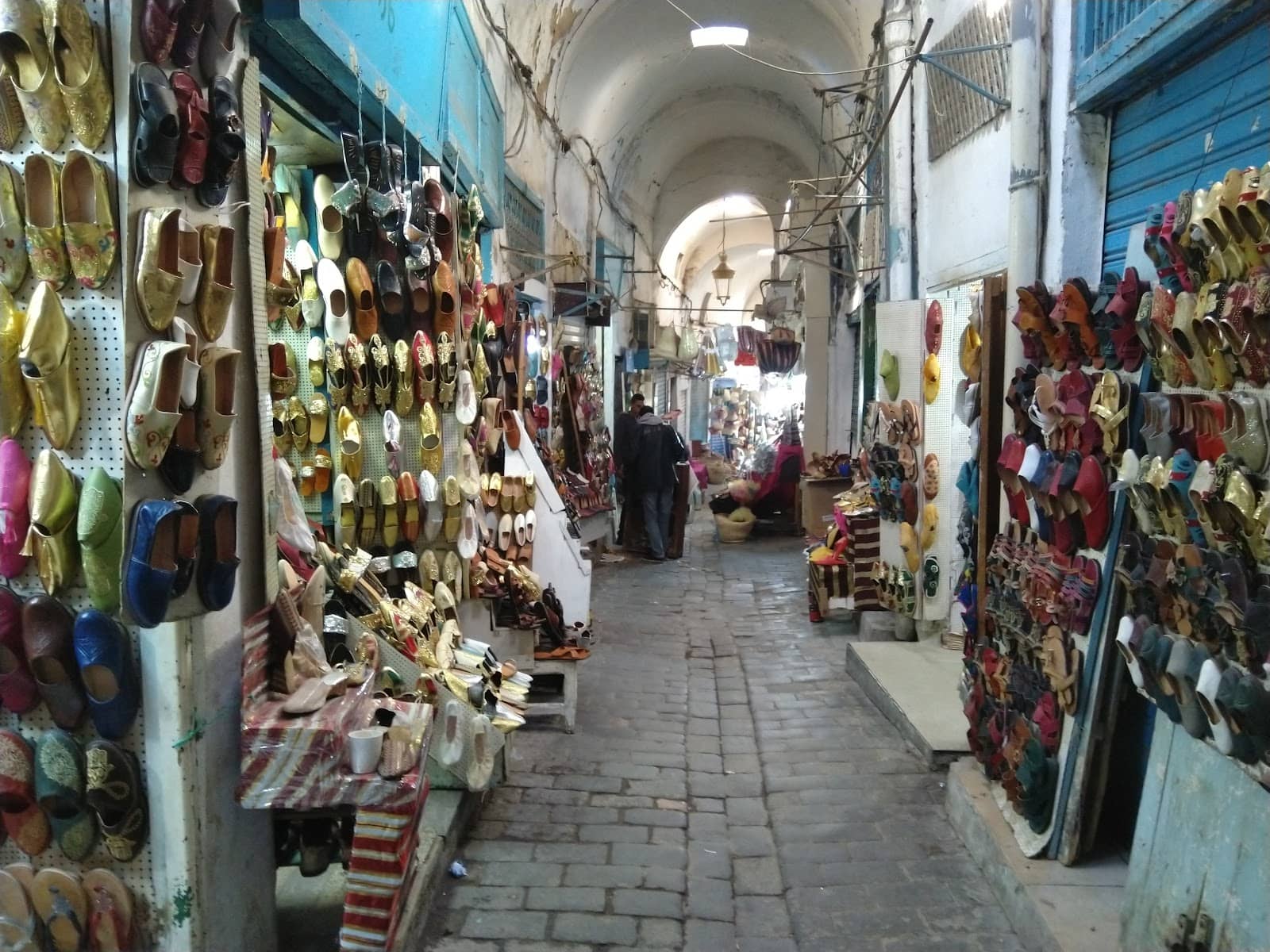
Artisanal Crafts
Artisan workshops
Witness skilled craftsmen at work, creating unique items that have been passed down through generations.
Plans like a pro.
Thinks like you
Planning Your Visit
Discover Authentic Tunisian Crafts
Navigating the Medina
Best Times
Insider Tips
from TikTok, Instagram & Reddit
🛍️ Bargain with a Smile
Haggling is expected! Start with a lower offer and negotiate respectfully for the best prices. :moneybag:
👟 Comfortable Footwear is Key
You'll be exploring winding alleys, so wear comfortable shoes for a pleasant experience. :athletic_shoe:
📍 Location Near Zitouna Mosque
Easily accessible as it's close to the Great Mosque of Zitouna, a major landmark. :world_map:
🎁 Perfect for Souvenirs
Ideal spot to find unique, handcrafted gifts and authentic Tunisian souvenirs. :gift:
Tips
from all over the internet
🛍️ Bargain with a Smile
Haggling is expected! Start with a lower offer and negotiate respectfully for the best prices. :moneybag:
👟 Comfortable Footwear is Key
You'll be exploring winding alleys, so wear comfortable shoes for a pleasant experience. :athletic_shoe:
📍 Location Near Zitouna Mosque
Easily accessible as it's close to the Great Mosque of Zitouna, a major landmark. :world_map:
🎁 Perfect for Souvenirs
Ideal spot to find unique, handcrafted gifts and authentic Tunisian souvenirs. :gift:
What Travellers Say
Reviews Summary
Visitors praise Souk El Blaghgia for its authentic atmosphere and the opportunity to find unique, handcrafted souvenirs, particularly leather goods and textiles. Many appreciate the historical significance and the chance to witness traditional craftsmanship. Some find the market can get crowded, and like many souks, bargaining is essential for fair prices.
"Nice and quiet big Souk"
D D
"Similar to the women's market and the perfume market, the lafa market is located in the vicinity of the Great Mosque of Zitouna. This market is also called the "Souk el-Jerba" (meaning the merchants are native to Djerba) who sell clothes and woolen blankets woven in Djerba, or elsewhere, especially the Jerid region of Tozeur and Gafsa. In addition, there are craftsmen who make the "sefsari", a blanket that women wrap themselves in."
Jamil MkF
"The origins of the souk date back to the 13th century and the Hafsid dynasty built by Abu Zakaria. At that time it was called Souk Chammaiine cad Ciriers (souk of candle makers) since the lighting of the Zitouna mosque and other places of worship as well as the houses was done by candles. In the 17th century, candles were part of the merchandise of Souk Attarine (perfumers) and Souk Chammaiine became Souk Sbabtia (shoemakers' souk), but it was only in the 18th century, under the reign of the son of Hussein Bey the First, that it was developed and called Souk Blaghgia. It should be noted that in this part of the medina, since the Hafsid era, several shoes were made, such as the Tmak Bashmak and Rihia for notables and religious figures, and under the Mouradites and Husseinites, the products were more diversified."
ben saad yassine
What People Like
What People Dislike
Frequently Asked Questions
🚇 🗺️ Getting There
Souk El Blaghgia is located in the heart of the Tunis medina, near the Great Mosque of Zitouna. You can reach it by taxi or by walking if you are already in the medina. Public transport options like the TGM train can get you close to the medina's edge.
Yes, it's quite well-known. Look for signs pointing towards the 'Souk El Blaghgia' or ask locals for directions to the 'shoemakers' souk' near the Zitouna Mosque. The medina can be a maze, so don't hesitate to ask for help.
Walking is the best way to experience the medina's charm. Wear comfortable shoes and allow ample time to wander through the narrow streets and discover hidden gems.
🎫 🎫 Tickets & Entry
No, entry to Souk El Blaghgia is free. It's an open-air market, so you can wander through its alleys without any admission fee.
The souk generally operates during daylight hours, typically from morning until late afternoon. Shops may close for a few hours in the early afternoon. It's best to visit between 9 AM and 5 PM.
Mornings are often less crowded, offering a more relaxed shopping experience. Late afternoons can also be pleasant, with softer light for photography.
🎫 🛍️ Shopping & Souvenirs
Souk El Blaghgia is famous for its handcrafted leather goods, including shoes (babouches), bags, and belts. You can also find traditional woolen blankets, textiles, and other artisanal crafts.
Yes, bargaining is a common practice in Tunisian souks. Be polite and friendly when negotiating prices to get the best deal.
Prices can vary depending on the quality and craftsmanship. While some items are affordably priced, high-quality leather goods might be more expensive. Bargaining helps in getting a fair price.
Look for stalls that display a wide variety of well-made items and observe the craftsmanship. Many vendors have been in the business for generations, indicating quality.
📸 📸 Photography
Yes, photography is generally allowed. However, it's always polite to ask permission before taking close-up photos of vendors or their merchandise.
The narrow, colorful alleyways, the displays of vibrant leather goods, and the artisans at work offer excellent photo opportunities. The late afternoon light can be particularly beautiful.
For Different Travelers
Tailored advice for your travel style
👨👩👧 Families with Kids
Look for smaller leather items like keychains or small pouches as souvenirs that kids might enjoy. The visual spectacle of the market itself can be an adventure. Ensure children stay close, and be mindful of your belongings in crowded areas. It's a good opportunity for them to practice basic greetings in Arabic or French if they're learning.
💰 Budget Travelers
Focus on items that are unique to the souk, like traditional babouches or woven blankets, which can be found at various price points. Avoid the most elaborate or heavily embellished items if you're on a strict budget. Visiting earlier in the day might also present opportunities for better deals as vendors are eager to make their first sales.
Deep Dives
In-depth insights and expert knowledge
A Glimpse into History: The Origins of Souk El Blaghgia
This historical evolution is evident in the types of goods still found today. The souk's legacy as a hub for shoemakers is clear, with numerous stalls offering a wide array of handcrafted leather shoes, from traditional babouches to more contemporary designs. The mention of 'sefsari,' a traditional women's wrap, also points to the enduring presence of textile crafts. The deep roots of these crafts in the region, particularly from Djerba and the Jerid area, highlight the souk's role as a marketplace for diverse artisanal traditions.
The Art of Leather Craftsmanship
When exploring the souk, take the time to appreciate the details: the stitching, the tooling, and the natural variations in the leather. While many vendors offer similar items, seeking out those with a reputation for quality can lead to finding truly special pieces. Don't hesitate to ask about the origin of the leather and the crafting process. This interaction not only enriches your understanding but can also help you in making an informed purchase and potentially securing a better price through respectful negotiation.
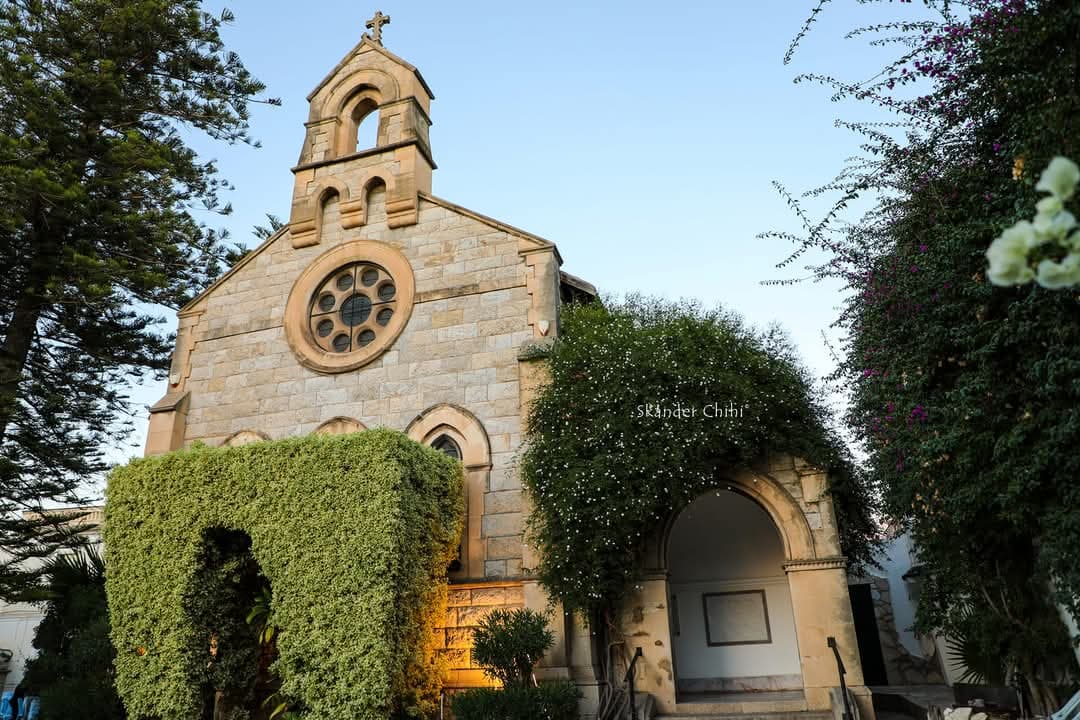

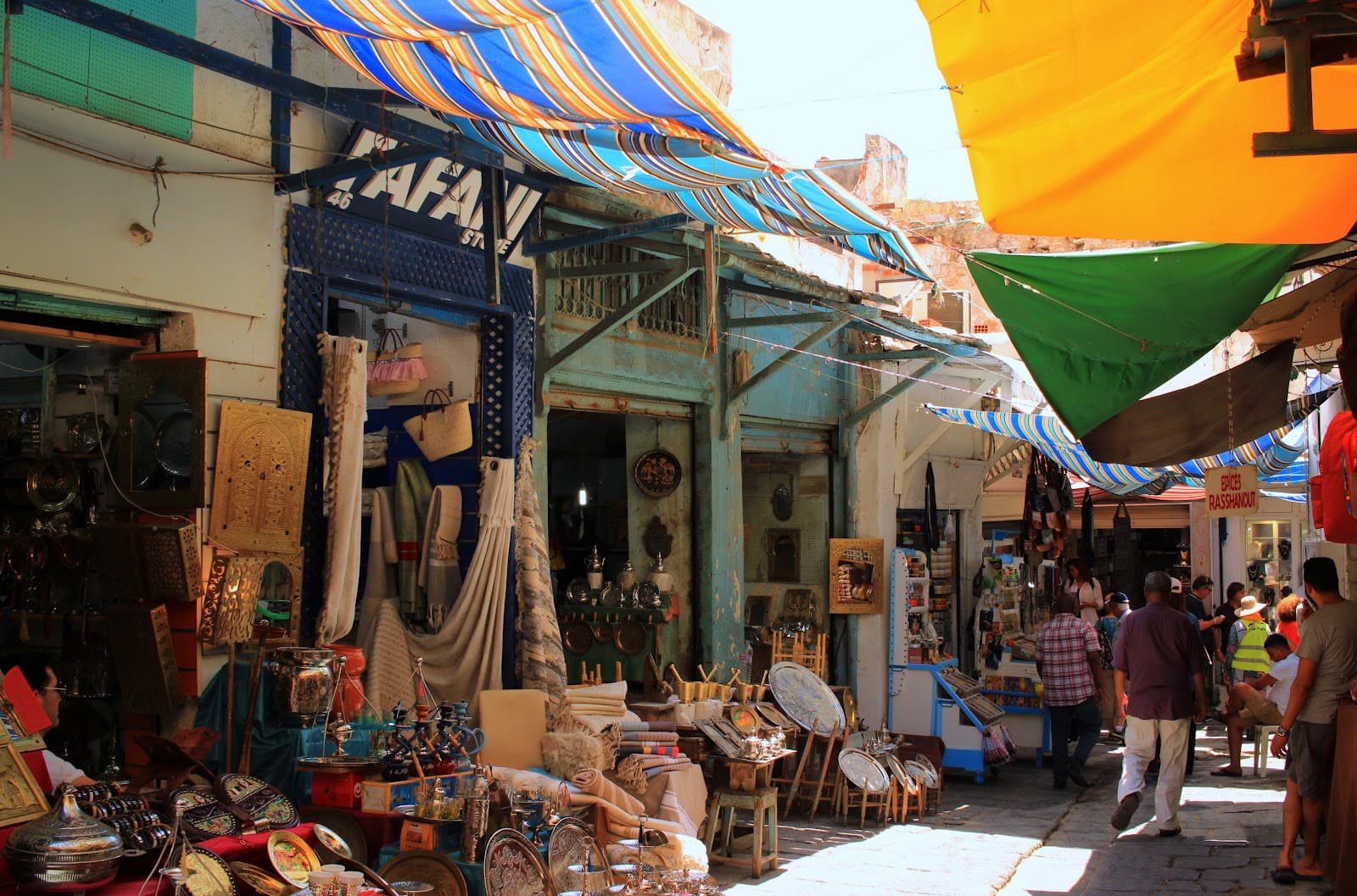

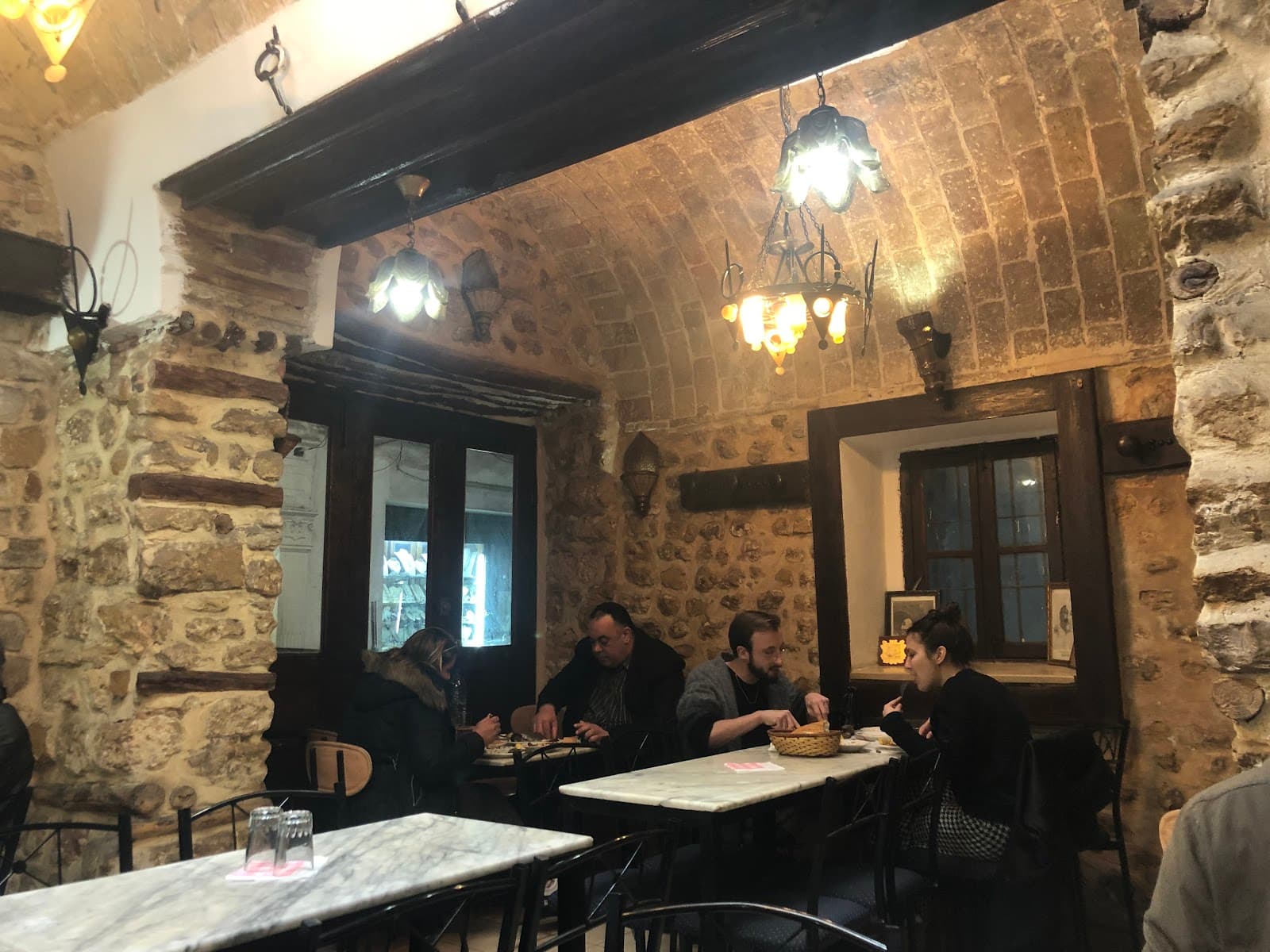
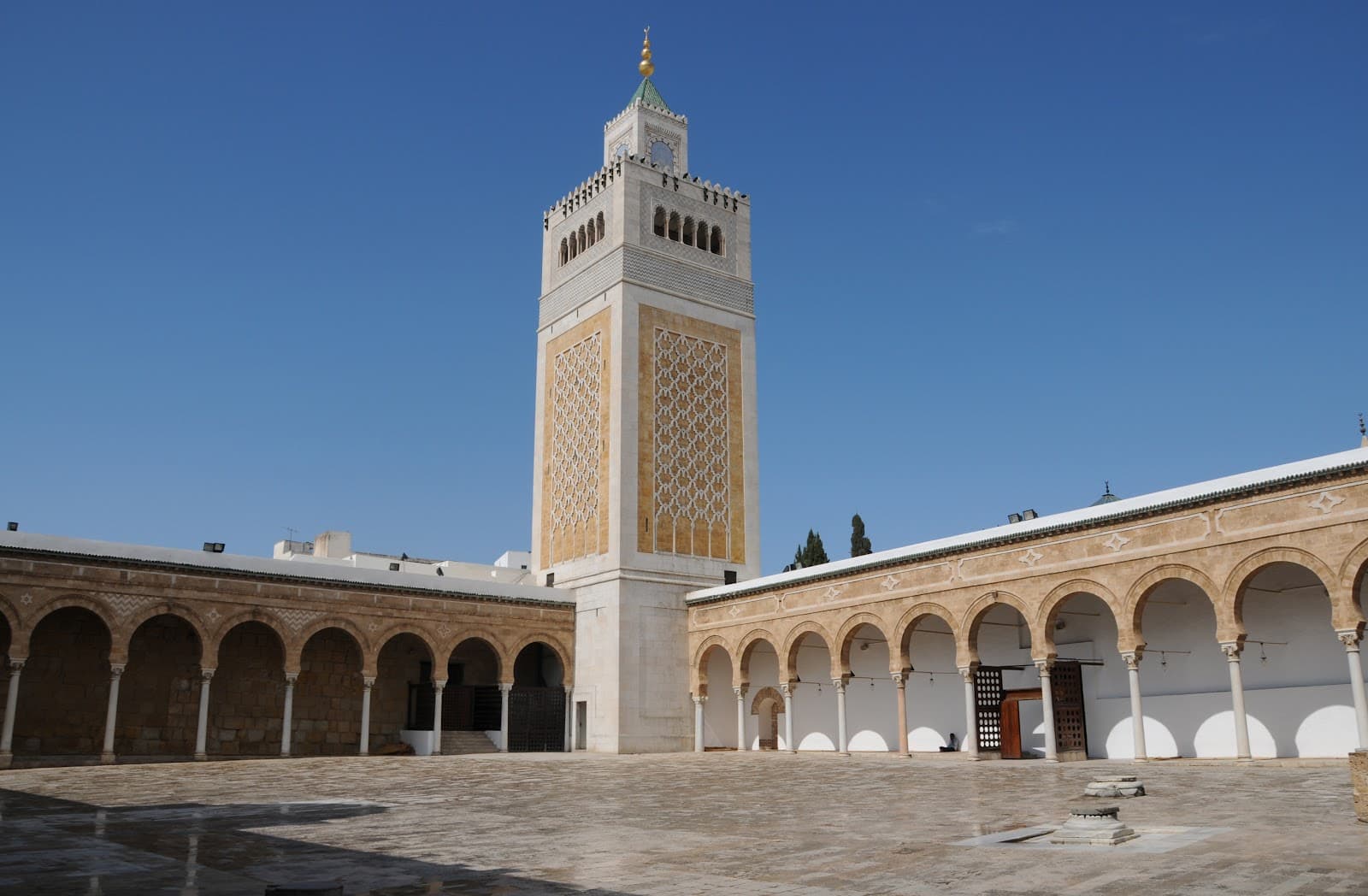
Social
from TikTok, Instagram & Reddit